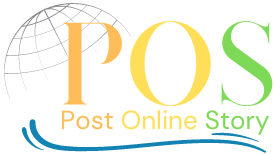Table of Contents
n today’s digital age, small businesses can leverage the power of digital marketing to reach their target audience, boost brand awareness, and drive business growth. However, limited budgets often pose a challenge for small businesses looking to make a significant impact in the digital space. The good news is that effective digital marketing doesn’t have to break the bank. In this blog post, we’ll explore cost-effective strategies that small businesses can implement to maximize their digital marketing efforts while staying within budget.
Know Your Target Audience
Before diving into digital marketing tactics, it’s crucial to have a solid understanding of your target audience. Developing buyer personas can help you identify the demographics, interests, and pain points of your ideal customers. Conducting market research doesn’t have to be expensive—utilize free online tools and social media insights to gather valuable data and insights.
Content Marketing
Content marketing is a powerful and cost-effective strategy for small businesses. By creating valuable and engaging content, you can establish yourself as an industry authority and attract a loyal audience. Focus on creating high-quality blog posts, videos, or infographics that provide relevant information and solve your audience’s problems. Additionally, leverage social media platforms and email newsletters to promote your content and engage with your audience without incurring significant costs.
Social Media Marketing
Social media platforms offer a cost-effective way to connect with your target audience and build brand awareness. Identify the social media platforms that align with your audience’s preferences and concentrate your efforts on those channels. Regularly share engaging content, interact with your followers, and participate in industry-related conversations. Utilize free social media management tools to schedule posts and track your performance effectively.
Read Also: On-Page and Off-Page SEO Demystified: A Comprehensive Guide for Marketers?
Search Engine Optimization (SEO)
Optimizing your online presence for search engines through Search Engine Optimization (SEO) plays a vital role in the success of your digital marketing efforts. By optimizing your website for search engines, you can improve your organic visibility and attract relevant traffic. Conduct keyword research to identify the terms your target audience is searching for and optimize your website’s meta tags, headings, and content accordingly. Furthermore, focusing your attention towards developing valuable backlinks from reliable sources will greatly enhance your website’s credibility and authority in the digital sphere.
Email Marketing
Email marketing remains one of the most cost-effective and direct ways to engage with your audience. Build an email list by offering valuable content or incentives on your website, and segment your list based on user preferences. Craft personalized and targeted email campaigns to nurture leads, share updates, and drive conversions. Utilize free or affordable email marketing platforms to automate your campaigns and track their performance.
Collaborations and Partnerships
Collaborating with other businesses or influencers can significantly expand your reach without requiring a large financial investment. Look for opportunities to cross-promote with complementary businesses or influencers in your industry. This can include guest blogging, co-hosting webinars or events, or creating joint marketing campaigns. By leveraging each other’s networks, you can tap into new audiences and gain valuable exposure.
Measurement and Analysis
To ensure that your digital marketing efforts are effective, it’s essential to measure and analyze your results. Take advantage of free analytics tools, such as Google Analytics, to track website traffic, user behavior, and conversions. Monitor key performance indicators (KPIs) that align with your business goals, such as click-through rates, conversion rates, or social media engagement. Regularly review your data and make data-driven decisions to optimize your strategies and maximize your ROI.
Conclusion
Digital marketing doesn’t have to be a costly endeavor for small businesses. By implementing cost-effective strategies and utilizing the available resources, small businesses can achieve significant results within their budget constraints. Understand your target audience, leverage content marketing, engage with social media, optimize your website for search engines, utilize email marketing, explore collaborations, and analyze your results. By taking a strategic and budget-conscious approach, small businesses can harness the power of digital marketing to drive growth and success.




